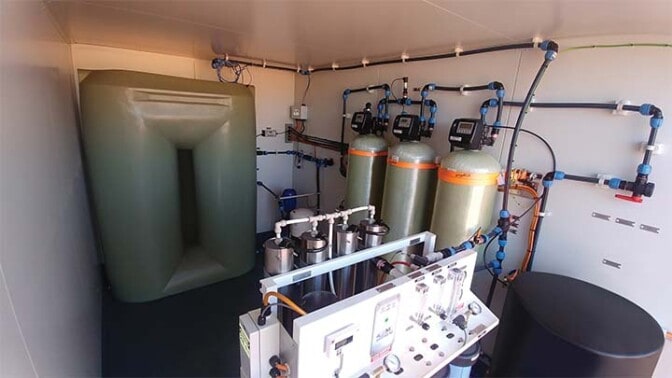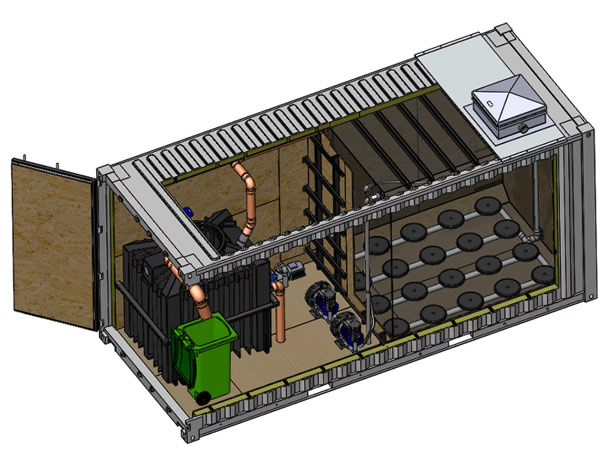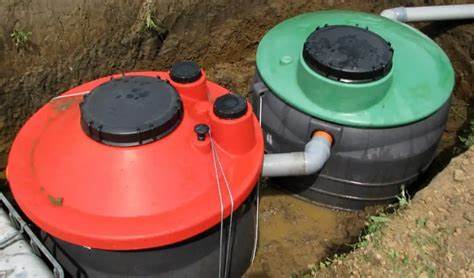
Introduction
Wastewater treatment in remote and off-grid areas poses unique challenges due to limited infrastructure and resources. This article explores the relevance and importance of providing wastewater treatment in these areas, while highlighting the specific challenges faced.
Historical Background
Wastewater treatment methods have evolved over time to address the growing need for sanitation. This section provides a brief history of wastewater treatment and discusses the advancements made in remote and off-grid areas.
Key Concepts and Definitions
Understanding the components of wastewater and the concept of remote and off-grid areas is crucial to comprehending the importance of wastewater treatment. This section defines wastewater, explains the concept of remote and off-grid areas, and emphasizes the significance of wastewater treatment in maintaining environmental and public health.
Main Discussion Points
Challenges in Wastewater Treatment in Remote and Off-Grid Areas
Lack of infrastructure and access to centralized wastewater treatment plants: Remote areas often lack the necessary infrastructure for establishing and maintaining centralized wastewater treatment plants, making it difficult to provide adequate sanitation services.

Limited resources and funding for wastewater treatment projects: Off-grid areas face resource constraints and limited funding options, making it challenging to invest in wastewater treatment projects and maintain them effectively.
Difficulty in implementing and maintaining wastewater treatment systems in remote locations: The remote nature of these areas presents logistical challenges in implementing and sustaining wastewater treatment systems, including transportation of equipment and maintenance services.
Innovative Wastewater Treatment Technologies for Remote and Off-Grid Areas
Decentralized wastewater treatment systems: Technologies such as septic tanks and onsite systems offer decentralized wastewater treatment options suitable for remote and off-grid areas, reducing the need for extensive infrastructure.
Use of alternative energy sources: To address energy challenges in off-grid areas, incorporating alternative energy sources like solar power or biogas can power wastewater treatment plants, ensuring sustainability.
Low-cost and sustainable treatment methods: Constructed wetlands and natural filtration systems provide cost-effective and environmentally friendly options for wastewater treatment, particularly in resource-constrained areas.
Importance of Community Engagement and Education
Role of community involvement: Engaging the local community in wastewater treatment initiatives promotes sustainable practices and community ownership, leading to the long-term success of treatment systems.

Educating communities about the benefits of wastewater treatment: Raising awareness about the importance of wastewater treatment and proper sanitation practices is crucial in remote and off-grid areas to improve overall public health and environmental sustainability.
Case studies of successful community-led initiatives: Examining case studies of community-led wastewater treatment initiatives in remote and off-grid areas provides valuable insights into effective approaches and highlights the impact of community involvement.
Case Studies or Examples
Case study: Wastewater treatment in a remote island community
Discuss the challenges faced and innovative solutions implemented: Explore the specific challenges encountered in providing wastewater treatment in a remote island community and the innovative solutions devised to overcome them.
Highlight the positive impacts of wastewater treatment on the community: Showcase the positive outcomes and benefits that the implementation of wastewater treatment has brought to the remote island community, such as improved health and environmental conditions.
Case study: Off-grid wastewater treatment in a rural village
Describe the specific wastewater treatment system used: Detail the wastewater treatment system implemented in a rural village that is off-grid, including its design, functionality, and suitability for the local context.
Discuss the effectiveness and sustainability of the system: Evaluate the performance of the off-grid wastewater treatment system in terms of its effectiveness in treating wastewater and its long-term sustainability in the rural village.
Current Trends or Developments
Advancements in wastewater treatment technologies for remote and off-grid areas have accelerated in recent years. This section explores the latest trends, ongoing research, and pilot projects in the field, emphasizing the importance of sustainable and environmentally friendly approaches.

Challenges or Controversies
Wastewater treatment in remote and off-grid areas is not without challenges and controversies. This section addresses the various challenges faced, including differing viewpoints on the feasibility and effectiveness of certain treatment methods, ensuring a comprehensive understanding of the topic.
Future Outlook
Speculating on the future implications and potential advancements in wastewater treatment for remote and off-grid areas is essential. This section discusses the role of technology and innovation in overcoming current challenges, paving the way for improved sanitation practices in these areas.
Conclusion
In conclusion, wastewater treatment in remote and off-grid areas is critical for maintaining environmental and public health. By addressing the challenges faced, promoting innovation, engaging communities, and adopting sustainable approaches, effective wastewater treatment can be achieved even in the most remote and off-grid locations.




